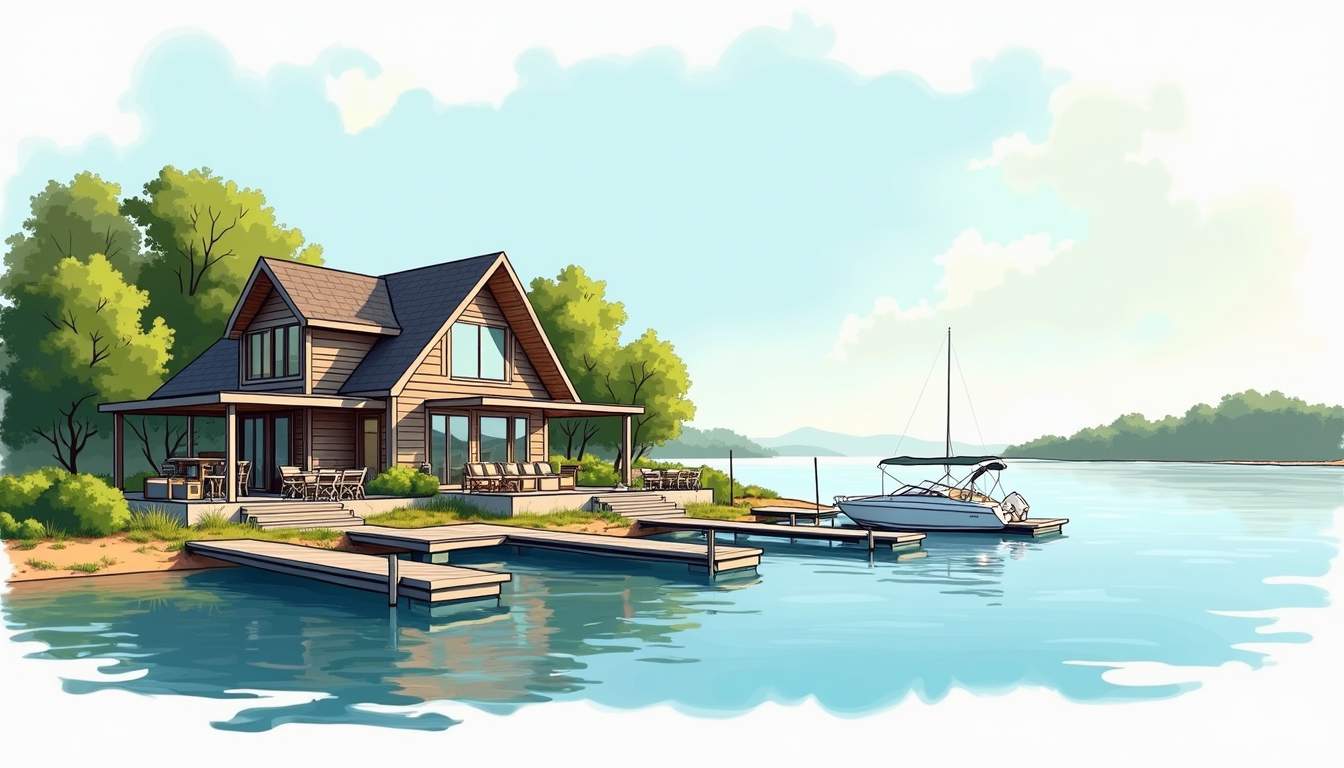
Living in a family home that comes with marina privileges blends everyday comfort with waterside adventure. Families can enjoy weekend boating, waterfront picnics, and easy access to fishing and water sports, while still having all the advantages of a suburban neighborhood. This article explores desirable communities that offer marina access, explains the practical and financial considerations, and provides a clear checklist for families considering this lifestyle.
Marina privileges mean different things in different communities, but usually include access to boat slips, docks, launch facilities, shared storage, and sometimes concierge services for boat maintenance. For families, these amenities translate into quality time outdoors, easy weekend plans, and a lifestyle that encourages exploration and activity.

Beyond recreation, marina communities often have strong social networks built around shared interests. Neighbors who boat and fish together tend to organize events, teach kids seamanship, and form tight-knit groups. This can be especially appealing for families seeking both community and convenience.
Additionally, owning a home with marina access often brings a sense of pride and exclusivity. Many communities host seasonal regattas, fishing tournaments, and waterfront festivals, giving residents unique opportunities to participate or simply enjoy local culture. These events foster a vibrant, engaging atmosphere that enriches family life and creates cherished memories year-round.
Proximity to water encourages active lifestyles—kayaking, paddleboarding, and family swims become part of everyday life, which contributes to better physical and mental health. Many marina communities are also near quality schools, parks, and nature reserves, offering a well-rounded environment for children. Safe pedestrian paths, playgrounds, and youth programs are commonly prioritized by these developments.
Furthermore, the calming presence of water and scenic views have been linked to reduced stress levels and improved overall wellbeing. Families benefit not only from physical activity but also from the restorative environment offered by waterfront living. The blend of education, recreation, and natural beauty creates an ideal setting for children to grow, learn, and develop a lifelong appreciation of the outdoors.
Marina neighborhoods are most concentrated in coastal and lakeside regions, but inland reservoir communities also offer compelling options. Several regions stand out for their blend of family-friendly housing and marina amenities.
Florida is renowned for its boating lifestyle and warm climate. Communities in South Florida, the Gulf Coast, and around the Intracoastal Waterway frequently provide marina access with both private and community-managed docks. Families appreciate the ability to boat year-round and the abundant programs for children such as junior sailing clinics and junior fishing tournaments.
Additionally, many Florida marina neighborhoods boast vibrant social calendars including regattas, waterfront dining events, and holiday boat parades that foster a strong sense of community. The state's extensive coastal infrastructure supports a wide range of watercraft, from personal kayaks to luxury yachts, ensuring that boating enthusiasts of all levels find suitable options. Local marinas often offer maintenance services and boat storage, simplifying ownership and encouraging ongoing engagement with the nautical lifestyle.
Coastal California offers dramatic scenery and well-developed marina communities. From suburban marinas in Orange County to quieter harbor towns up the coast, these communities often combine upscale amenities with family-oriented activities. Restrictions on new marina construction mean existing communities can be desirable and hold value over time.
The rich cultural offerings nearby, including coastal hiking trails, seaside farmers markets, and marine education centers, add to the appeal of these neighborhoods. Many California marina communities focus heavily on environmental sustainability, incorporating eco-friendly dock designs and water quality programs to protect the fragile coastal ecosystems. For families, local schools often partner with marine institutes to provide unique educational experiences centered around oceanography and conservation.
States like North Carolina, Georgia, and Maryland provide a balance of affordability and strong marina cultures, especially around sound and river systems. These areas tend to offer more spacious homesites and community-focused marinas with local boating clubs and youth programs.
These regions often benefit from a relaxed pace of life paired with rich historical heritage, which is reflected in waterfront festivals and maritime museums. The presence of numerous inland waterways enhances boating options beyond just ocean access, making it easier for families to explore varied cruising destinations. Many communities host seasonal fishing tournaments and educational workshops aimed at cultivating a lifelong passion for water sports among younger generations.
Not all marina privileges require ocean access. Large lakes and reservoirs host planned communities with full marina services, waterfront trails, and swimming beaches. These locales often offer calmer waters and family-friendly conditions, making them excellent for learning to boat or for young children.
These inland environments often serve as hubs for year-round outdoor recreation beyond boating, including hiking, cycling, and birdwatching, contributing to a well-rounded lifestyle. Waterfront parks and picnic areas are common features, encouraging family gatherings and community events. Moreover, many inland marina neighborhoods are actively involved in conservation efforts to maintain water quality and preserve natural habitats, ensuring these tranquil settings remain enjoyable for generations to come.
Buying a home in a marina-oriented community requires additional due diligence beyond standard homebuying checks. Attention to marina rules, maintenance responsibilities, and environmental factors can prevent costly surprises.
Marina privileges are governed by agreements—either HOA covenants, separate marina leases, or membership rules. These documents outline boat length limits, slip allocation methods, maintenance fees, transferability of privileges, and guest policies. Clarify whether marina rights convey with the property or are seasonal, temporary, or limited to community members.
A community might advertise marina access, but slips can be limited. Investigate current slip occupancy, the existence of waiting lists, and whether slips are sold, leased, or allocated annually. For families planning to own a boat, immediate slip availability can be crucial.
Marinas require ongoing maintenance—docks, pilings, dredging, and utilities like pump-out stations. Request a history of special assessments, reserve fund levels, and recent capital improvements. A well-funded reserve suggests prudent management; frequent special assessments could indicate deferred upkeep and higher future costs.
Waterfront properties often carry unique insurance requirements. Verify flood and wind insurance needs, marina liability policies, and whether shared facilities require owner-level coverage. Confirm the cost of insurance in the region and whether the marina operator has adequate liability protection for common areas.
Not all marina communities are equally suited to families. While some cater to transient boaters and nightlife, others prioritize safety, education, and long-term residents. Choosing the right balance is essential for family life.

For families with small children or novice boaters, protected waters and shallow launch areas reduce risk. Look for communities with calm coves, marked swim zones, and clear sightlines from shore. A secure, well-lit dock and slip area can make evening access safer and more convenient.
Communities that offer sailing lessons, junior regattas, kayak clubs, or environmental education programs provide built-in activities for kids. These programs foster skills and confidence on the water, and they also help families integrate into the neighborhood.
Good marina communities are walkable to parks, grocery stores, schools, and medical facilities. Daily convenience matters—especially with young children—so ensure the layout supports easy errands and quick access to essentials.
Marina-privileged properties involve layered costs and regulations. A thorough financial plan and legal review will protect both lifestyle goals and investment value.
Beyond mortgage payments, account for slip fees, dock maintenance, insurance, fuel and storage, and potential assessment reserves. Estimate annual marina-related expenses and compare across communities to find one that aligns with the family budget.
Confirm that marina access rights are clearly documented on the property title or HOA covenants. Review easements, tidal rights, and public access issues that might affect dock placement or future improvements. Legal clarity prevents disputes down the line.
Hire inspectors who specialize in marina structures and seawall conditions, in addition to a regular home inspection. Issues like wood rot, corrosion, piling condition, and underwater hazards can be expensive to repair and may not be visible during a standard home inspection.
Having a checklist tailored to marina properties helps keep the transaction on track and protects the family's interests.

Obtain the marina agreement, HOA covenants and bylaws, reserve study, financial statements, recent assessment notices, slip assignment records, and insurance policies. Also request maintenance logs and any dredging or permitting records for the marina and waterfront structures.
When making an offer, include contingencies for a satisfactory marina inspection, verification of slip availability, and a review of the community's financial health. These contingencies give leverage if issues are discovered during due diligence.
Coastal jurisdictions often have seasonal permit restrictions for dock work or dredging. Closing timelines should account for local permitting windows if repairs or upgrades are planned. Align the move and any renovation schedules with these restrictions to avoid delays.
Marina-privileged homes carry lifestyle advantages that can also influence long-term value. Understanding how lifestyle choices affect resale and family needs will guide a wiser purchase.
Properties with documented marina access and well-maintained common facilities often command premium pricing. However, market demand can vary with region and waterway health. Communities that proactively manage water quality and shoreline structures usually retain stronger long-term value.
Communities that invest in shoreline stabilization, native habitat restoration, and responsible waste management create healthier ecosystems and more attractive neighborhoods. Family buyers often benefit from participating in local stewardship groups, which reinforces community bonds and preserves water access for the next generation.
Selecting a family home with marina privileges is a balance between lifestyle desires and practical planning. Families should prioritize safety, clear marina agreements, fiscal responsibility, and programs that support youth engagement. When the right combination of community, amenities, and legal clarity is found, a marina-privileged home can offer years of adventure and a strong, connected neighborhood for raising a family.
Use the outlined checklists and tips to guide property visits, inspections, and negotiations. With careful research and a thoughtful approach, the maritime lifestyle can become a stable, enriching part of family life rather than an unexpected source of expense or inconvenience.
Ready to embrace a lifestyle that combines luxury, community, and waterfront access? Tennessee National offers exquisite family homes within a premier gated community featuring a private marina, scenic nature trails, and over 20 member amenities including a Greg Norman Signature Golf Course and waterfront dining. Whether you prefer a move-in ready home or a custom build, our community is designed to support your family’s active and connected lifestyle. Schedule a Private Tour today and start creating unforgettable memories at Tennessee National.